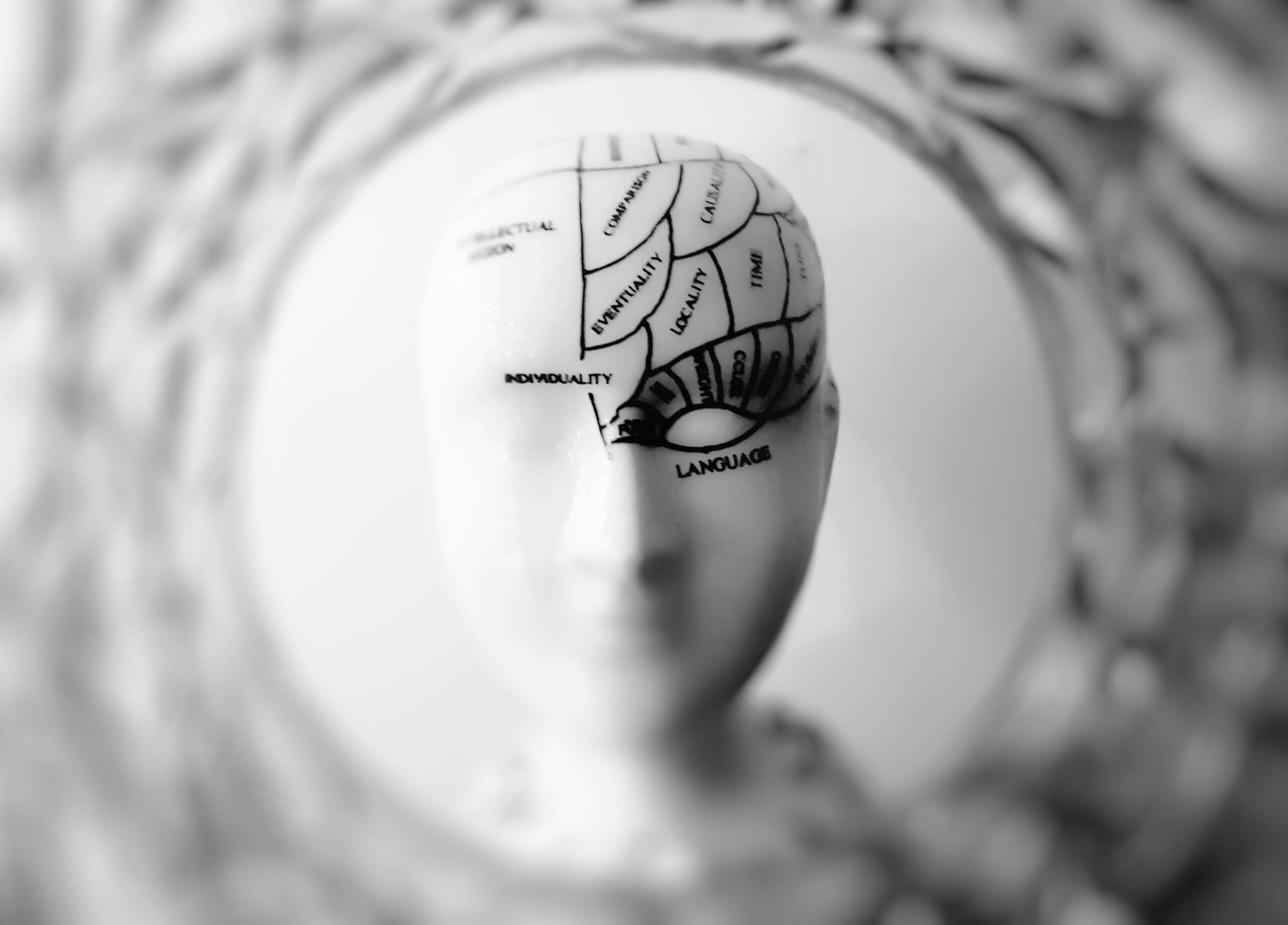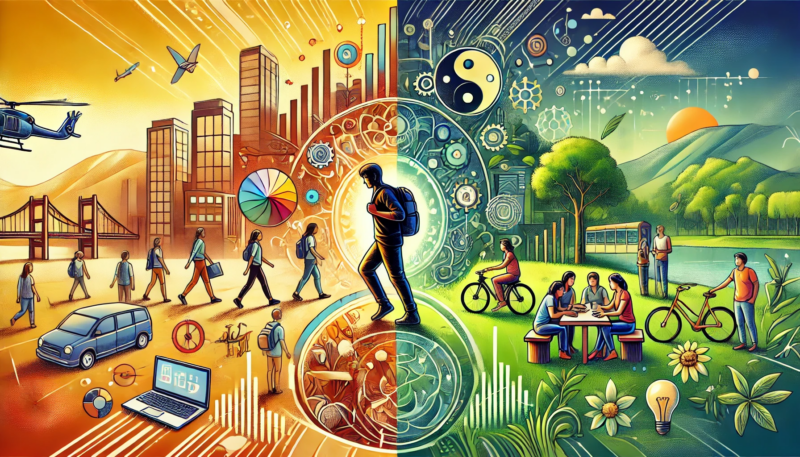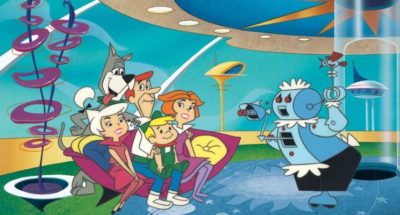Clichés are everywhere
Have you ever pondered that it’s too easy to be a cliché?
Dad jokes seem to never get better, and societal norms like gender roles and pay equity are shifting slower than we’d like.
Research supports this, as findings from the Australian Institute of Family Studies highlight the persistent gender divide in working families (AIFS).
Stereotypes simplify human behaviour but also confine it. They limit creativity, stifle innovation, and perpetuate stagnation. To thrive in a fast-evolving world, individuals and organisations must move beyond these narrow constructs and embrace diverse perspectives and unconventional thinking.
Clichés, though comfortable, are limiting. Recycling tired ideas in advertising or engineering risks irrelevance and alienates audiences who don’t see themselves reflected. Research confirms that homogeneity in teams hinders problem-solving and creativity.
We have been blessed to work across diverse sectors over two decades of category research. One of the consistent observations is that sectors hire from within the sector and generally replicate clichés, so competitors are more similar to different, and the solutions to problems and opportunities the same as those trying to defeat.
Categories of vanilla more than rainbow
Relying on these moulds often leads to stagnation, missed opportunities, and a failure to connect in meaningful ways. To thrive in an ever-evolving world, individuals and organisations must move beyond these narrow constructs and embrace the potential of diverse perspectives and unconventional thinking. It is hard to shift entrenched thinking with conformation bias looking to reinforce old perspectives, and implicit bias shapes our views of culture and society.
Sticking to clichés stifles innovation.
Recycling tired ideas may feel comfortable, but it limits creativity. For instance, advertisers who rely on outdated beauty standards or engineers who focus solely on technical solutions risk missing the mark on relevance and impact. Research shows that homogeneous approaches often alienate audiences who don’t see themselves reflected in campaigns or solutions.
Beyond this, stereotypes lead to irrelevance. Industries that fail to evolve risk being overtaken by competitors who are quicker to adapt and embrace change. As the world moves faster, staying tethered to the past is no longer an option.
Moving beyond clichés opens doors to creativity, connection, and resilience. Diverse teams outperform homogeneous ones, as varied perspectives challenge assumptions and foster innovation. Studies, such as one in the IZA Journal of Development and Migration, show how cultural diversity enhances problem-solving and creativity (IZA Journal).
Breaking free from clichés requires more than just assembling diverse teams; it demands a deep understanding of the people we aim to serve. Human-centered research, sensemaking, and cultural insight play pivotal roles in this process. By delving into the lived experiences, values, and behaviors of individuals, we uncover the nuances that challenge stereotypes and reveal opportunities for innovation. These approaches allow us to see the world as it is—not as we assume it to be—helping us design solutions that resonate deeply and authentically.
Breaking free requires intentional effort. Hire inclusively and empower all voices to contribute meaningfully. Encourage cross-disciplinary collaboration—pairing disciplines like design with engineering or anthropology with marketing fosters fresh ideas. Challenge outdated norms by asking, “Why do we do it this way?” and embrace continuous learning to broaden perspectives.
Research also helps shift beyond cliches, the known knowns, towards unknown knowns.
“There are known knowns; there are things we know that we know. There are known unknowns; that is to say, there are things that we now know we don’t know.But there are also unknown unknowns – there are things we do not know we don’t know”. Donald Rumsfeld
Culturally informed research can guide decision making beyond clichés – bringing on new perspectives beyond our own biases and bubbles. For example, sensemaking frameworks help teams interpret the complexities of social trends and human behaviours, ensuring that their strategies remain relevant and impactful in a rapidly changing world.
As a case study, Square Holes’ work for beer group Lion Co centred on understanding how young people from across Asia, India and the Middle East socialise and celebrate with family and friends, towards creating new opportunities for cultural empathy. This informed a renewed cultural diversity strategy and the innovation that comes.
How to break the mould
- Invite diverse voices: Hiring talent from different backgrounds and fostering inclusion encourages fresh ideas and perspectives.
- Embrace cross-disciplinary collaboration: Blending disciplines—such as engineering with design, research and marketing with behavioural science—yields holistic solutions.
- Challenge conventional processes: Encourage questioning of “the way it’s always been done” to unlock new possibilities and overcome outdated limitations.
- Invest in continuous learning: Professionals who explore fields outside their own gain new tools and insights to approach challenges differently.
- Culturally informed research: Decision making beyond clichés – bringing on new perspectives beyond our biases and social-economic, demographic and other bubbles
Clichés are safe, but they’re limiting. The future belongs to those who dare to question, collaborate, and innovate. Breaking the mould isn’t just bold—it’s necessary.
Groundbreaking ideas are born where clichés end.
…
Bonus, I asked ChatGPT for help with some ‘cultural cliches that are likely correct’ …
- “The Irish love to talk.”
While a stereotype, the Irish are known for their gift of gab and storytelling traditions, rooted in their history of oral folklore and music. - “The Germans are efficient.”
Germany’s focus on precision, engineering, and punctuality often aligns with this cliché, visible in their automotive industry and cultural emphasis on order and reliability. - “The French love food and wine.”
French culture deeply values gastronomy, with meals seen as an art form and wine as an essential complement to dining, reflected in their world-renowned culinary heritage. - “Australians are laid-back.”
While not universally true, Australia’s beach culture and “no worries” attitude suggest a national ethos that values relaxation and enjoying life outdoors. - “The Japanese are polite.”
Politeness and respect are ingrained in Japanese culture, evident in customs like bowing, honorifics in language, and meticulous attention to social harmony. - Italian Chefs (Passionate about food)
Italian chefs are renowned for their passion and artistry in creating simple yet exquisite dishes, reflecting Italy’s deep culinary traditions. - Swiss Watchmakers (Precise and meticulous)
Swiss watchmakers embody precision and attention to detail, making Switzerland synonymous with quality timepieces. - Indian Software Engineers (Tech-savvy and adaptable)
India’s strong emphasis on education in STEM fields has produced a significant number of highly skilled software engineers, thriving in global IT industries. - American Entrepreneurs (Innovative and risk-tolerant)
The U.S. fosters a culture of innovation and risk-taking, making it a hub for ambitious entrepreneurs and startups. - Japanese Architects (Harmonizing tradition and modernity)
Japanese architects are celebrated for blending traditional aesthetics with cutting-edge design, reflecting their culture’s reverence for balance and innovation. - “Women are better multitaskers”
While it’s not universal, studies suggest women may be better at juggling multiple tasks due to differences in brain connectivity and social expectations that encourage multitasking. - “Men take more risks”
Research consistently shows that men, on average, are more likely to engage in risk-taking behaviors, influenced by both biological factors (like testosterone) and cultural norms. - “Women are more empathetic”
Women often score higher on measures of empathy, likely due to a mix of social conditioning and potential neurological differences, like more active mirror neuron systems. - “Men are less likely to seek help”
Men often avoid seeking medical, emotional, or professional help due to societal expectations of self-reliance and stoicism. - “Women communicate more effectively”
Women are generally thought to excel in verbal and non-verbal communication, which can be attributed to both biological factors and a cultural emphasis on relationship-building. - “Older people are wiser”
Life experience often gives older individuals a broader perspective and better decision-making skills, aligning with the adage “wisdom comes with age.” - “Teenagers are rebellious”
Adolescence is marked by a natural desire to assert independence, explore identity, and sometimes challenge authority, fueled by hormonal and brain changes. - “Children are curious”
Young children are inherently curious, constantly asking questions and exploring the world as part of their developmental process. - “Middle-aged people are stressed”
The midlife stage often comes with juggling careers, family responsibilities, and financial pressures, leading to higher stress levels. - “Older people resist change”
While not universally true, older generations may be more resistant to new technologies or trends due to comfort with established habits and skepticism of unfamiliar concepts. - “You are what you eat”
A person’s diet directly impacts their physical and mental health, making this saying scientifically accurate. - “Practice makes perfect”
While perfection is subjective, consistent practice undeniably improves skills and performance over time. - “Money can’t buy happiness”
While money can provide comfort and security, research shows that happiness often stems from relationships, purpose, and experiences rather than material wealth. - “Time heals all wounds”
Emotional pain often diminishes over time, as people process and adapt to their experiences, even if the scars remain. - “What goes around, comes around”
While not always immediate, actions often have consequences, and kindness or negativity tends to elicit similar responses over time. - “Tradies are the backbone of Australia”
Tradespeople (plumbers, electricians, carpenters) are essential to Australia’s economy and culture, often associated with hard work, practical skills, and good banter. - “Miners earn big bucks”
Australia’s mining industry is a major economic driver, and workers in mining roles often receive high salaries, especially in remote areas. - “Teachers are overworked and underpaid”
Teachers in Australia, as in many countries, face long hours, heavy workloads, and modest pay despite their critical role in shaping future generations. - “Aussie farmers are resilient”
Australian farmers are celebrated for their toughness, often battling droughts, floods, and market challenges to sustain the country’s agricultural industry. - “Lifeguards are iconic”
Lifeguards are not just a summer cliché but a vital profession in a country with some of the world’s most beautiful—and dangerous—beaches, reflecting Australia’s beach-loving culture.




